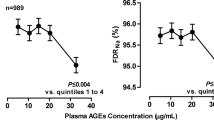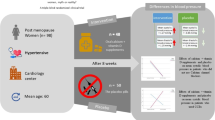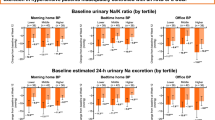Abstract
Metabolism of Na+, Ca+ and Zn+ cations is clearly disturbed and involved in the development and maintenance of a hypertensive condition. These changes are closely related to each other; therefore, when their effects on primary hypertension (PH) are studied, they should always be globally (and not separately) considered. These changes of the aforementioned electrolytes in PH maintain a close, but unclear, relationship with various hormonal systems, mainly with the renin-angiotensin-aldosterone system. Daily control in the intake of these electrolytes (especially Na+ and Ca++) remains a cornerstone in the adjuvant treatment of PH. Na+ dietary restriction is indicated in hypertensives showing higher sensitivity to salt; in most cases they have low (70%) plasma renin activity (PRA) and belong to one of the following five groups: black, elderly, obese or diabetic (type 2) patients, and mixed blood young people from our community with low levels of PRA and serum ionic calcium. For best results, this moderate Na+ restriction (4–6 g of NaCl) should always be accompanied by an oral calcium supplement, or at least the assurance that the subject takes an appropriate amount of Ca++ (>800 mg/day) in his/her diet. Hypertensives with low PRA exhibit obvious changes of their calcium metabolism. We do not know the role of Zn++ in the development of PH; however, older hypertensives with very low PRA have high urinary excretion of Zn++ with low serum levels, a factor that could contribute to Zn++ depletion in these hypertensive patients. The oral administration of calcium corrects the Zn++ changes by a still unclear mechanism.
This is a preview of subscription content, access via your institution
Access options
Subscribe to this journal
Receive 12 digital issues and online access to articles
$119.00 per year
only $9.92 per issue
Buy this article
- Purchase on Springer Link
- Instant access to full article PDF
Prices may be subject to local taxes which are calculated during checkout
Similar content being viewed by others
Author information
Authors and Affiliations
Rights and permissions
About this article
Cite this article
Zozaya, J. Nutritional factors in high blood pressure. J Hum Hypertens 14 (Suppl 1), S100–S104 (2000). https://doi.org/10.1038/sj.jhh.1000995
Published:
Issue Date:
DOI: https://doi.org/10.1038/sj.jhh.1000995



